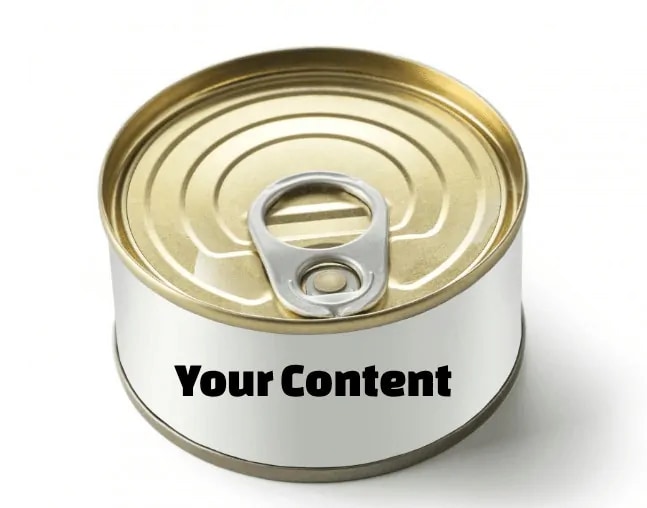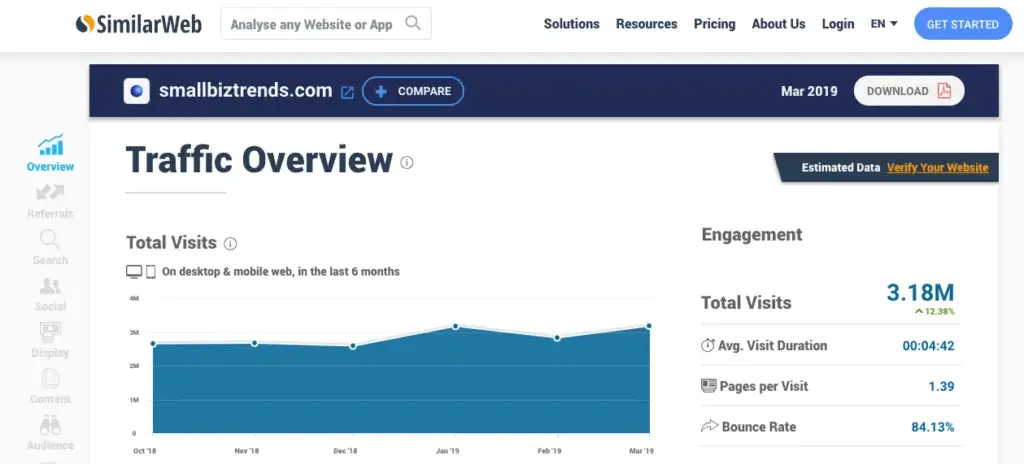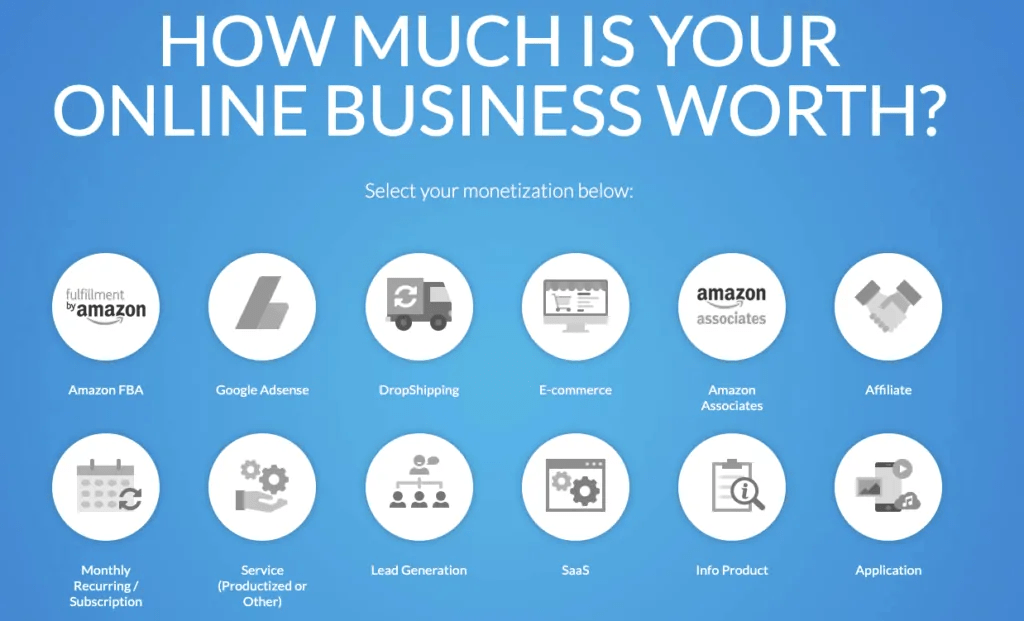
What To Know When Buying Or Selling A Website
Get helpful updates in your inbox
What To Know When Buying Or Selling A Content Website
If you want to buy or sell a website, you probably have a lot of questions and concerns, especially if you’re considering it for the first time. When buying or selling a website, you’re doing what real estate investors often do. You’re assessing a property to understand it’s true potential value to you.
“What do I need to do to sell my website?”
“What are the biggest risks of buying an existing website?”
“How can I boost a site’s income to make a profit?”
“How do I get people to want to buy my site?”
“When is the best time to sell a site?”
I recently sat down to interview with Greg Elfrink of Empire Flippers. Empire Flippers is an online brokerage and marketplace for buying and selling online businesses (everything from content publishing sites to e-commerce sites).
Greg helped us dig into all the questions and more. See what he had to share on top of some of the wisdom we’ve previously gathered from John Cole — who had previously bought and sold hundreds of digital publishing sites.

Background on Greg & Empire Flippers
Before working for Empire Flippers, Greg worked in SEO, email marketing, and worked with a lot of online businesses to better understand how they generated revenue. Now, as the Director of Marketing for Empire Flippers, he works to expand knowledge on buying and selling websites externally to customers.
Greg’s exposure to hundreds of publishers and online businesses that are selling their sites online has given him a unique perspective on what it takes to be successful in the art of buying and selling existing websites over the web.
Below, we’ve combined some of Greg’s knowledge with the information from John Cole’s previous presentation about this topic to give some answers around popular questions on the topic of buying and selling sites.
If you prefer to hear an audio version of some of this material, another member of Empire Flippers executive team, Mike Swigunski, was on the popular Publisher Lab podcast recently.
What are three things to know when you’re buying a website?
There are three things that you think a publisher should know or understand before actually buying a website:
- Good SEO practices — (Greg)
- Conversion rate optimization (CRO) — Greg
- How to audit a site’s traffic & revenue — John
Greg says that looking at your site as a media company rather than a niche or authority site is important because you’re going to make a thousand different small decisions that add up to a very big difference over the length of that content site’s life.

This means thinking of your “website” as a business and your content as a product. This means understanding that creating content is like investing in inventory.
Creating valuable inventory (website content) should become a goal and understanding how that product can be sold and distributed is key to a successful business.
What SEO practices should publishers know before buying a website?
According to Greg, technical SEO and on-page optimization are both important.
Greg likes tools that simplify this, like Page Optimizer Pro (POP), Moz, and others. Understanding the basics of there parts of SEO will help potential buyers know when a site has been built using ethical practices or unethical practices. Just having tools at your disposal won’t always provide this kind of context.

Publishers can use a tool like SimilairWeb to see an estimation of how a site has built their traffic over time and what the majority of the traffic looks like. However, if a buyer gets serious about purchasing a property, they should ask for Google Analytics read-only access from the seller, or make sure the seller has been vetted by a trustworthy 3rd party, like Empire Flippers.
SimilairWeb’s chrome extension is free and can be a helpful device when browsing multiple sites to buy.
Overnight organic traffic growth or growth that features a lot of unknown or direct traffic can be sketchy.

Here are some good SEO skills and practices you can use or learn to grow a site and understand ethical organic traffic growth:
- Tips for ranking quickly in Google Search
- How to learn SEO yourself and avoid “consultants”
- How to use old content to drive new organic traffic
- Why small websites can outrank larger ones and how they do it
What should you know when selling a website?

- GREG: Keep good records of the website’s performance. You should be tracking all of your traffic through analytics. You should have something that shows not only how much money you have earned but also how much money you spent to earn that money (Profit & Loss: P&L). A lot of publishers don’t necessarily need a P&L and so they won’t have it. However, if you’re running a big media or content site and have a big in-house team that will follow the business once it sells, you need to have some kind of P&L for the buyer to go over.
- GREG: You should have at least 12 months worth of historical data, traffic, and revenue for your website. It’s not necessary, but you’re typically going to get a worse sale price without it. A longer history equals a better multiple at the end of the day because your site has proven itself.
- GREG: Use a broker if you’re unsure. If you’re looking for information on how to sell your content site, it’s likely your first time. A broker is trying to get you the most amount of money as possible because that also means more money for them and may have better insights on how to properly value and evaluate the price someone should pay for your site. It’s also important to be coachable. There’s a lot of value in listening to your business analysts, almost like you would as a coach.
- JOHN: Use contracts and communicate clearly and specifically. Having everything in writing can take some of the sketchiness out of buying and selling something, like a business, online. If you don’t use a broker or online marketplace, you need to make sure to use a transaction 3rd-party (for example – escrow.com) to avoid a nightmare scenario in which you don’t get paid for your site.
What stats do you need to sell a website?
According to Greg from Empire Flippers, it really depends on how you’re currently monetizing your website. If you’re an e-commerce store owner, having a P&L is kind of like the Holy Grail of the company. That becomes less important on content sites.
You want to make sure you have great data on-hand for the buyer. Obviously, records from Google Analytics and ad earnings sources are important, but having additional granular data from something like Ezoic’s Big Data Analytics is valuable because it shows all the site’s earning data together cohesively.

A good start might be bringing in key metrics like pageviews, total ad earnings, earnings per 1,000 pageviews, and earnings per 1,000 visits into a monthly spreadsheet and then also highlight expenses for that month (hosting, paying writers, etc.) alongside how much profit was made on total earnings after expenses were paid.
I would probably also separate my personal bank account with my business bank account, as that will show net profit and all of the transactions easier, especially if you want to do an add back. — Greg from EmpireFlippers.com
EXAMPLE from Greg: Let’s say you own a seven-figure content site but in the P&L, there’s a $20k expense for this business conference in Las Vegas. Maybe you took your family along to the conference for a vacation as well. Though the conference wasn’t directly related to your business, you were interested in it from a business perspective, so you charged the trip as a business expense. You can add that expense back as if you didn’t spend it, especially if you have the trip well tracked, and that could affect the valuation of your site.
How do you avoid sketchy brokers or scams online?
The practice of buying and selling existing websites online is historically pretty shady and filled with unscrupulous actors. There are a lot of fly-by-night brokers and potential buyers and sellers who are independent of any business and often prey on first-timers. You never know if they are lying and how they may be trying to falsify information unless you know where to look.

- GREG – Do your due diligence on any brokers. Assume that you are potentially buying a six or seven-figure deal before you go into business with that broker because you very well could be. But, do the same kind of due diligence as if you were buying a real brick-and-mortar business.
- GREG – Look for testimonials and talk to other people in the industry. Look for a brokerage with a team that’s been in business for multiple years and has a good track record. A good rule of thumb is to also see if the broker has ever sold a content site and for how much. If you’re trying to sell a content site worth $100k, see if the broker has ever sold a content site worth $100k or even more, because that proves they could also likely sell your site.
- GREG – Get on the phone with the broker before moving forward and see how you feel about their processes. Ask or find ways to be in contact with the customers from their testimony videos. A lot of times, those customers are very open about a good experience and they’re even more open about a bad experience.
- JOHN – Review the site backward and forwards. A lot of the details on auditing a site for buying and selling are in this blog.
What are ways you could get scammed buying or selling a website?
Scams usually are the result of someone not collecting the right data upfront or being deceived by getting bad data from one party. Examples of info that need to be verified or double-checked:
- Buyer- Website traffic and traffic sources
- Buyer – Revenue sources and history of revenue
- Buyer – Penalties, lawsuits, or ad network bans
- Seller – Identity or proof that they are a real person
- Seller – Confirmation that a 3rd party funds transfer will occur
- Seller – Terms of the deal in writing
While there is always the possibility of a scam, there are also legitimate ways a website deal could fail, where there are no ill feelings on either side.
According to Greg, if you have a content site that is worth over $500k, that’s when things like an earn-out deal may come into play.
For example, if I want to buy the site and put up $450k, I would agree to pay the remaining $50k over a five-month period through monthly installments of $10k. Many times, these earn-out deals are tied to a milestone.
A buyer will want to tie that earn out to a net profit milestone. So in this example, for the buyer to be required to pay that monthly $10k, the business has to hit $20k net profit per month. A buyer would do that to protect themselves from buying a bad website by keeping the seller a bit in the game. This way, if the website gets in trouble they can get help from the seller because the seller wants to get that remaining amount of money.
However, this puts the seller at risk. Before buying the website, the buyer and the seller discussed how the buyer would need to invest $18k in web design and CRO. So, for that first month, the seller waives the $10k owed. But what if that buyer keeps “reinvesting” $18k each month to run the website? The seller risks never getting paid the rest of the money.
A seller earn-out milestone is focused on revenue and this provides protection for the seller. Revenue is a lot harder to get tricked on than net profit. A buyer doesn’t like setting milestones on revenue because there may be a situation where they have to spend a lot of money to fix something, such as when a Google algorithm update rolls through. Now, the risk on them.
So, both sides would get burned either way, but it’s not necessarily a scam. They both came to terms on it. One of the terms might benefit the other party slightly better, but it just depends on who is willing to take the bigger risk. – Greg from Empire Flippers
How do you increase the value of a site quickly?
The cool thing about buying a content site is it’s usually a lot easier to go from $5k a month to $10k a month than it is from $0 to $1k, according to both John and Greg.
If you’re starting a content-based website from scratch, your primary traffic channel is traditionally going to be from SEO if you’re in it for the long-haul. According to Greg, What’s nice about buying a website is you already know it’s a profitable niche because the revenue is there as proof. Also, if it’s a good site, then it probably already has some meaningful backlinks.

Greg thinks that using a good broker helps mitigate the risk of buying a site with black hat SEO used to grow it; as many publishers lack the skills to look into this properly he says.
Greg’s tips for increasing the site’s value:
- Immediately do in-depth keyword research or ask the seller for a list of keywords they haven’t yet acted upon.
- Get as much content based around those keywords in production right away, within the first month.
- Put in display advertising and use a platform like Ezoic to streamline testing placements, networks, etc. Most content sites are affiliate-based and do not have display ads. Now you’re making money from the affiliate deals, which are more optimized, and you’re gaining additional revenue from display ads. And if you’re using Ezoic, those display ads are continually more profitable because their locations are always being optimized.
Note: If you do use affiliate-based revenue on your site, make sure to change your affiliate links to rel=sponsored like Google wants before March 1, 2020.
How do you minimize risks when flipping websites?
If you want to flip websites, I would say you should first be somewhat skilled in starting them and running them. Once you’re good at that, I would make sure you stick to a system that you know works. – Greg from Empire Flippers
A simple system Greg likes as a checklist for flipping sites:
- Create more content (it’s the product you sell)
- Optimize existing keywords
- Add another form of monetization
- Create an email list
Greg says that usually, the sites that you buy are going to only have a single source of monetization, but that doesn’t mean that there isn’t an opportunity for a second or third form of monetization. You could add display ads, an info product, work with an affiliate program, or explore other forms of monetization that fit that site’s theme.
According to Greg, Flippers are usually thinking more short-term, so he recommended looking for a monetization method that you specifically have experience in. Display ads and affiliate deals tend to go hand in hand.
Greg claims that most publishers he’s seen don’t have an e-mail list. He thinks it is critical to start building or growing a list of newsletter or email subscribers as soon as possible.
What advice would you give to a first-time buyer or seller?
GREG: The biggest advice I could give is to look at your bank account before you buy that business. Often, the issue with first-time buyers is that they buy a website and they aren’t prepared.

I’m working a 9 to 5 job as a mid-level manager in this cubicle and I don’t like it. I have $120k saved up and I can buy a $100k site and make $5k a month, so I quit my job. That all sounds great on paper, but you really have to ask yourself ‘do I have the skill set yet?’ I’m not saying it’s rocket science, but there are definitely some complex elements, especially if you have no experience.
Join Facebook groups, and learn the ropes a little bit.
You could even start a little starter site. I’m not saying you have to take that starter site to fruition, and it doesn’t even need to make a profit, but it’s a great way to test out owning a website before putting a bunch of money on the table.
Basically, get some basic knowledge. Don’t spend your emergency fund thinking that this is your ticket out. There’s still real work involved.
If we compare it to investing in real estate or stocks, the ROI for investing in a website is insane. I was talking to a guy that bought five very small sites like for maybe $10k. 80 percent of them failed, some of them pretty badly. I thought he must be pretty angry with those results, but he just said, ‘Well I wish I was making more money, of course, but it’s still outpacing everything that’s in my stock. So, it’s money well spent.’
What are examples of successful website flips or sales you’ve seen?
From Greg: The guy bought it for about $52k and then after about six or seven months, he sold it for $210k. That guy, in particular, is extremely good at what he does.
That’s not everyone of course, but that doesn’t mean you can’t buy a $54k website and sell it for $80k. That’s still a huge win.
Anything else for interested buyers or sellers to know?

More from Greg: Just to harp on my earlier point, content sites should be looked at as little media companies. Then, you’re no longer just chasing the SEO keywords —you do social, you do email, you broaden your horizons a little bit. Once you get an actual visitor to your site, there’s the other 90 percent of marketing left to do. That’s a very powerful thing to remember when building sites because having multiple channels of traffic makes your site more stable, which also makes your business a lot more valuable.
The other thing I would say is if you’re a content publisher looking to begin buying and selling, one of the best ways to start is by selling your current content site. We had a guy who built up multiple different content sites and was selling them with us over a period of a year and a half; he had acquired around $700k at the end. He took that $700k and was able to buy a SaaS buisness and then created a service where he acquires all these other tech companies for a hosting company.
Maybe you don’t go into a more competitive niche and you use that money from your first sale to start ten other content sites. Now, you have the money for the services, the in-house writers, and all that goes along with it. There are a lot of things you could do with the money you earn from selling your current content site.
All of this to say, buying and selling websites can seem complicated, and it is in some ways, but it also doesn’t have to be as hard as people think it is. It’s a great industry to invest in and services like Empire Flippers can make it a lot easier, pretty risk-free, and get you a really good deal.
Questions or comments? Feel free to leave a comment and I can try to answer or put you in contact with someone at Empire Flippers.
Featured Content
Checkout this popular and trending content

Ranking In Universal Search Results: Video Is The Secret
See how Flickify can become the ultimate SEO hack for sites missing out on rankings because of a lack of video.
Announcement

Ezoic Edge: The Fastest Way To Load Pages. Period.
Ezoic announces an industry-first edge content delivery network for websites and creators; bringing the fastest pages on the web to Ezoic publishers.
Launch

Ezoic Unveils New Enterprise Program: Empowering Creators to Scale and Succeed
Ezoic recently announced a higher level designed for publishers that have reached that ultimate stage of growth. See what it means for Ezoic users.
Announcement
